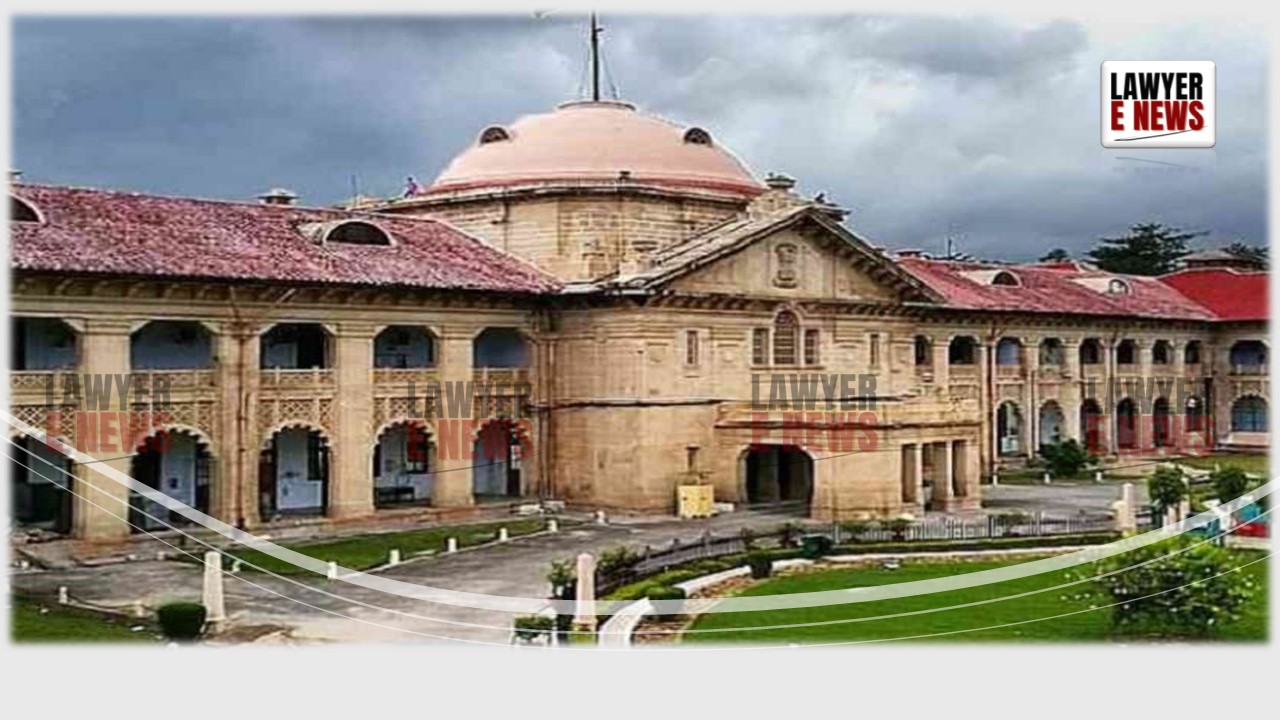-
by Admin
15 February 2026 2:36 AM



High Court Critiques Evidence and Sets Aside Conviction in Nem Singh Murder Case
The Allahabad High Court has set aside the conviction of Rajveer Singh for the murder of Nem Singh, a case heavily reliant on circumstantial evidence. The judgment, delivered by a bench comprising Justices Rajiv Gupta and Shiv Shanker Prasad, emphasized that suspicion, no matter how strong, cannot replace proof beyond reasonable doubt. The court critiqued the reliance on recovery evidence and highlighted the prosecution’s failure to establish a clear motive or a complete chain of evidence.
The case revolved around the murder of Nem Singh, who was found dead on August 4, 1999, with multiple injuries inflicted by a sharp-edged weapon. The FIR, initially lodged against unknown persons by Surendra Kumar, Nem Singh’s son, led to an investigation that eventually implicated Rajveer Singh, Nem Singh’s brother, and another individual, Rakesh. The prosecution’s case was based on circumstantial evidence, including the recovery of an axe and blood-stained clothes from Rajveer Singh’s house, and a purported motive involving familial disputes over property.
The court underscored the necessity of a complete and unbroken chain of evidence in cases based on circumstantial evidence. “The circumstances from which the conclusion of guilt is to be drawn should be fully established and consistent only with the hypothesis of the guilt of the accused,” the bench noted, referencing the principles laid out in Sharad Birdhichand Sarda v. State of Maharashtra and Hanumant v. State of Madhya Pradesh.
The judgment criticized the trial court’s reliance on the recovery of an axe and blood-stained clothes from Rajveer Singh’s house. The High Court found the procedures for recovery under Section 27 of the Indian Evidence Act inadequately followed. “The statement of the Investigating Officer regarding the recovery of items did not meet the legal standards required for admissibility under Section 27,” the court remarked.
The prosecution’s attempt to establish a motive based on property disputes was deemed unconvincing. The court highlighted inconsistencies in the testimonies of the witnesses regarding the alleged motive. “In a case of circumstantial evidence, motive plays a pivotal role. The prosecution’s failure to prove a cogent motive creates a serious dent in the case,” the judgment stated.
The court examined the testimonies of key witnesses, including the victim’s son, Surendra Kumar, and brother, Ranveer Singh. It found significant contradictions in their statements. “The fact that the initial FIR was lodged against unknown persons and the subsequent implication of the accused was based on mere suspicion casts doubt on the prosecution’s narrative,” the bench observed.
The judgment delved into the legal requirements for conviction based on circumstantial evidence. It reiterated the importance of proving each link in the chain of circumstances conclusively. “The prosecution must exclude every hypothesis except that of the guilt of the accused. The evidence presented in this case fails to meet this standard,” the court held.
Justice Rajiv Gupta remarked, “Mere suspicion cannot substitute proof beyond reasonable doubt. The prosecution’s failure to establish a clear motive and the procedural lapses in recovery evidence make the conviction unsustainable.”
The Allahabad High Court’s decision to acquit Rajveer Singh underscores the judiciary’s commitment to upholding the principle of ‘innocent until proven guilty’. The judgment highlights the critical importance of adhering to legal standards in evidence collection and the necessity of a robust and unbroken chain of evidence in circumstantial cases. This ruling serves as a significant precedent in reinforcing the legal framework for evaluating circumstantial evidence in criminal cases.
Date of Decision: 24.05.2024
